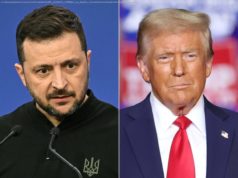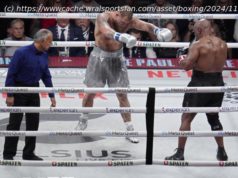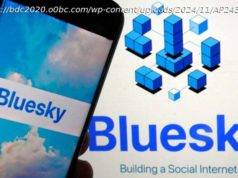Opposition leader all but guarantees clashes with police — and his own arrest — with last-minute venue change for Moscow protest
MOSCOW — Russian police took up positions near the Kremlin on Monday morning, ready to break up a planned protest organized by the country’s leading political opposition figure — a man who hopes to challenge President Vladimir Putin’s clutch on power in 2018 elections.
CBS News correspondent Elizabeth Plamer reported crowds of demonstrators were heading into central Moscow.
After weeks of negotiating, Russian opposition leader Alexei Navalvy got permission to hold his Moscow rally in a different downtown square, but less than a day before the protest he said no one would rent him sound and video equipment — under pressure, he claimed, from the government to embarrass his movement — so he changed the venue.
As Palmer reports, that means his protest is no longer authorized by the government, and it all but guarantees clashes with the police and, quite possibly, another arrest for Navalny, who was detained at his last protest in March .
A message posted to Navalny’s Twitter account on Monday made it appear that he had already been detained — before even leaving his apartment building.
Navalny’s wife said she was the one sending the tweet, and said her husband was detained in the apartment building staircase on his way out of the building. She followed it moments later with another tweet, captioned «Happy Russia Day, » with a photo of her husband, seemingly being taken into custody by police.
Monday is Russia Day, a national holiday. Navalny’s wife Yulia said her husband had asked her to pass on word to his followers prior to his arrest that the plans for the protest «remain the same: Tverskaya, » a reference to the central Moscow square he chose just hours earlier as the protest venue.
One of Navalny’s aides said in a sepatate Twitter post that electricity and internet connectivty had been cut at their offices just prior to his arrest, ending a live web stream showing the gathering in Moscow.
After the change in venue, Moscow police warned earlier Monday that «any provocative actions from the protesters’ side will be considered a threat to public order and will be immediately suppressed.»
The March protests took authorities across the country by surprise, given the huge turnout in cities across Russia. Thousands took to the streets — mostly young people who support Navalny’s anti-corruption message, but who are also angry about everything from unemployment to state control of the media. More than 1,000 protesters were arrested.
Navalny is a populist, explains Palmer, and a provocateur with a genius for publicity.
There are many people — including inside his own movement — who suspect the last-minute change of venue for Monday’s protest is really a gambit to gain publicity and put more pressure on the Kremlin to let him run in the presidential election next year.
He has no chance winning the vote, but he would be the first serious opposition candidate to take on Putin — if he is permitted to run. Russia’s election commission can ban a candidate from running if they fail to garner a certain number of signatures backing their bid, or if some of the signatures are deemed fraudulent.
Navalny also has an outstanding conviction for alleged fraud from February this year (he insists the charge was politically motivated) , and if he is formally sentenced for that conviction he would be disqualified from standing in a presidential election. He has continually appealed that ruling, however, and is expected to continue doing so to prevent it blocking his candidacy next year.
The protests in March took place in scores of cities across the country, the largest show of discontent in years and a challenge to Putin’s dominance of the country.
The Kremlin has long sought to cast the opposition as a phenomenon of a privileged, Westernized urban elite out of touch with people in Russia’s far-flung regions.
Monday’s protests could demonstrate that the opposition has significant support throughout the vast country.
Navalny’s website reported Monday that protests were held in more than a half-dozen cities in the Far East, including the major Pacific ports of Vladivostok and Khabarovsk and in Siberia’s Barnaul. Photos on the website suggested turnouts of hundreds at the rallies.
Eleven demonstrators were arrested in Vladivostok, according to OVD-Info, a website that monitors political repressions.
Navalny has become the most prominent figure in an opposition that has been troubled by factional disputes. He focuses on corruption issues and has attracted a wide following through savvy use of internet video. His report on alleged corruption connected to Prime Minister Dmitry Medvedev was the focus of the March protests.
Navalny has announced his candidacy for the presidential election in 2018. He was jailed for 15 days after the March protests. In April, he suffered damage to one eye after an attacker doused his face with a green antiseptic liquid






